This article is part of our Youth Voices series. At Ten Strands we believe that young people have valuable perspectives and a critical role in shaping our society and our world. We recognize their power to drive dialogue and create positive change, and are committed to providing a platform which amplifies their contributions.
The Green New Deal (GND) has become a hot-button issue in American politics on par with gun control, abortion, and healthcare. First introduced to the general public by New York Congressional Representative Alexandria Ocasio-Cortez in November of 2018, the GND has sparked controversy and debate across the country and throughout the government. On the same day Ocasio-Cortez presented the resolution to create a GND committee, the Sunrise Movement, of which I am an active member, held a massive protest at the office of Speaker of the House of Representatives Nancy Pelosi to demand that she support the Green New Deal. Like many older Democrats, Pelosi was skeptical if not outright dismissive of the GND and those who support it, even going so far as to say, “The green dream, or whatever they call it, nobody knows what it is, but they’re for it, right?”
So, what is the Green New Deal? What does it mean? Why are some people so opposed to it and others so enthusiastic about its potential?
It’s no surprise that the general public has so little information about the proposal. Americans are severely under-informed about climate change and the environmental crisis. Most of us understand the basic science of carbon dioxide emissions, but according to a report by Big Think, currently only 70% of Americans believe that human activity contributes to climate change and only 64% believe that climate change is a crisis. Given this information, it’s no surprise that few Americans understand the GND and even fewer trust it—especially given the less-than-enthusiastic opinions of nearly all Republican leaders and some Democrats.
I understand that the Green New Deal can seem idealistic and, as some call it, “radical” but radical is what we need right now. For those who are unfamiliar with GND, it proposes a living wage job for every American who wants one, universal healthcare, universal housing, a transition to 100% clean and renewable power, and a just transition for frontline communities and those whose jobs depend on coal and fossil fuels. These things may seem extreme, but they should scare no one except for those who benefit from the oppression and endangerment of the majority of Americans.
The Green New Deal is simply a proposal for a new and better America. It can mean different things to different people. For me, the Green New Deal is my American dream.
It is the dream of a better world and a better country; a country where all Americans have the autonomy and ability to achieve any level of education they desire, contribute to jobs that benefit their communities, and live in a world where they do not have to question if they and their descendants will have access to clean water, clean air, and a sustainable future. For my community, the GND means that our leaders will take informed action to prevent apocalyptic fires and torrential floods before they happen, laborers will have their rights and health protected, and agriculture will be conducted responsibly with concern for the land and wildlife.
This summer, I had the honor of joining Sunrise at the Midwest Summit in Detroit. We supported local movements as they protested outside the Fox Theater, where the second Democratic debate was held. There, I learned about the power of moral protest, I learned about the people and groups that make up the environmental movement, I learned about the Democratic nominees, and I learned what the Green New Deal meant to a community like Detroit. On the final day of the summit, we organized at a demonstration to march with and support the people of Detroit.
The Sunrise Movement Midwest Summit was a three-day intensive summit designed to train youth activists from all over the country in moral protest, peaceful demonstration, protest strategies, leadership, community support, dialogue, and the tools and principles needed to be productive members of a civically-engaged society.
On the first day of the summit, I was terrified. I had come from California to spend three nine-hour days in the company of strangers learning about political movement theory and current action. All 200+ people stayed in an ancient-looking theater, where sleeping bags littered every possible surface from threadbare seats to the stage and hallways. During those three days I met youth activists from across the country, including Chicago, Detroit, Kentucky, Washington, and Maine.
The experience was unlike anything I had ever been exposed to. We trained in purposeful storytelling, studied moral protest, practiced dealing with the press, role-played demonstrations that had gone badly, and shared ourselves and our stories. Never have I found so many different people with such similar experiences. We were, as the Sunrise principles say, “of many colors and creeds” with different backgrounds, but we share so much.
We share the same dreams, the same fears, the same values, the same desperate hope, and the same sense of urgency. I knew, just by looking around the dimly lit rooms filled with sleeping bags and the heavy knowledge of shared responsibility, that these rooms were filled with not only our future leaders, but also the young Americans who have accepted the burden of saving the world as our own.
As we discussed over shared meals and moments of rest the stories of climate change that have impacted our communities, I began to feel less alone. I shared the feeling of smoke filling my lungs as I walked to school; someone else shared the experience of watching as the forest around their home was torn down and replaced. We have an impossibly large task ahead of us, but in these three days I truly saw for the first time that we have the tools, we have the numbers, and we have a plan.
The Summit culminated in a march down the streets of Detroit and a protest at the steps of the Fox Theater, where the Democratic presidential hopefuls debated for the second time. The march was organized by Frontline Detroit, and called for candidates to “make Detroit the engine of the Green New Deal.” On the first night of the debates, there were only four direct questions about climate change, despite that fact that four of the ten candidates claimed that climate change was the greatest threat to the nation. On the second night, although there was significantly more discussion about each candidate’s direct plan to deal with the climate crisis, the issue once again took a back seat. This pattern was repeated on the night of the protest, despite the fact that thousands of Detroit citizens stood outside of the debate and demanded that the candidates focus on the environment. The citizens of Detroit demanded that the Democrats listen to the voices of those most impacted by environmental racism and invited the candidates to 48217, the most polluted ZIP Code in Michigan.
I believe that climate change can and should be a uniting issue. Environmental issues are all-encompassing and widely felt. Immigration, economics, healthcare, job security, agriculture, transportation, and a myriad of other issues are all deeply entwined with the environment.
Climate change cannot just be a footnote in the list of buzzwords a candidate uses in a 30-second sound bite. The climate crisis must be addressed as exactly that: a crisis. It’s shocking to me that climate change isn’t already the top concern for every educated human being on Earth, as it was in Detroit. The reality of our situation is that no other issue will matter in comparison if we our planet isn’t livable. We have no more time for arguments or hesitation. The only moral choice is to take immediate action. I have always had faith in the power of the people to choose our leaders, and in Detroit I witnessed that our most influential leaders are often those working at the local level.
This event was by far the most intense and important protest I have ever attended. We rallied to bring the country’s attention to Detroit, a city long abused and taken advantage of by corporations. Detroit is caught in a tumultuous snapshot of time, perched between urban decay, urban renewal, and gentrification. Frontline Detroit and the unions who gathered to support the GND as a solution for Detroit made their feelings clear to the nation. They demand fair treatment for workers and communities. They demand companies like Marathon Oil be held accountable for the damage they have inflicted on Detroit’s most vulnerable communities. They demand clean water, and to live without the fear of having all water denied to them if they cannot pay. I felt joy and sorrow, passion, and anger as I listened to speaker after speaker share how Detroit, once a mecca of industry and innovation, if given the chance could become the engine of sustainability and community organization that would spark a change in the nation.
The Detroit organizers were enraged, and rightly so. As soon as Sunrise arrived, they made it clear that while they appreciated our help and support, this was a movement by and for people of color. Their exact words were that those who were white and privileged should “step back and shut up.” We did exactly that, illustrating to me that it was long past time for those who possess privilege, however inadvertently, must accept that it is time to cede space and offer support. Sunrise marched behind Frontline Detroit and the sea of local union workers. We embraced our role as allies and accomplices, acknowledging that on that day we were not the leaders. I felt like part of something much bigger than myself. That night, the Democratic candidates again failed to represent the people of Detroit when it comes to climate change—but they saw us, and the nation heard our battle cry.
They cannot and will not ignore frontline communities any longer, because the power of our nation lies in artists, teachers, laborers, farmers, students, and communities like those that rallied in Detroit. Activist S. Baxter Jones put it best at the march when he said: “If you want our vote, you cannot continue to neglect us. Nothing about us without us.”
For Detroit, the Green New Deal means healing. It means justice for the wronged, treatment for the sick, and jobs for the jobless. It means that the people of Detroit will no longer be ignored or taken advantage of. It means that people will not be forced from their homes or denied clean water. It means children will be promised the opportunity to have healthy bodies and healthy futures. It means liberty and opportunity. It means our government will do right by people, and it means visibility and leadership for the people of Detroit.
This is their dream; it is our dream. We are willing to fight for the Green New Deal, combat climate change, and fight injustice. Will our leaders join the battle? Will you?

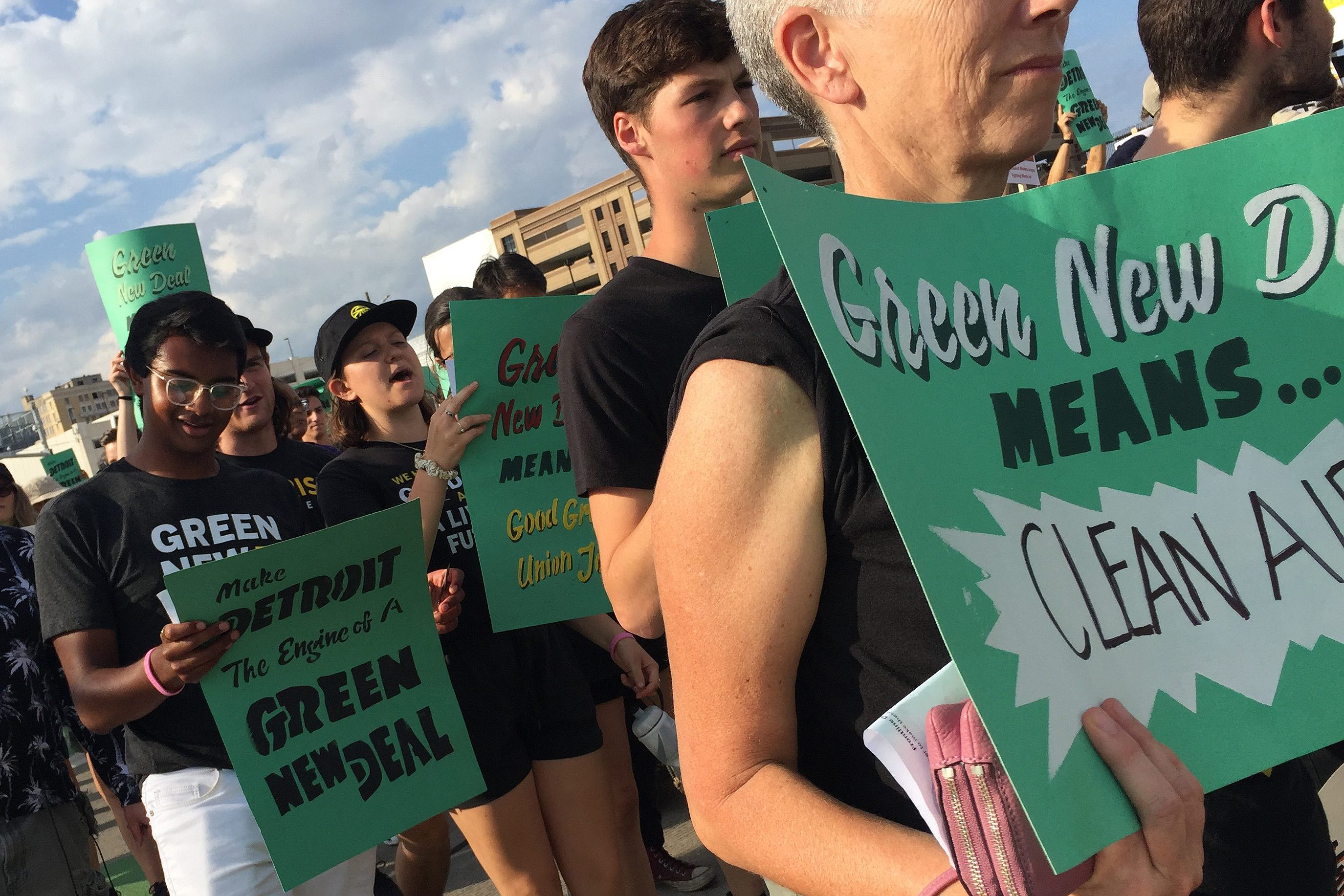
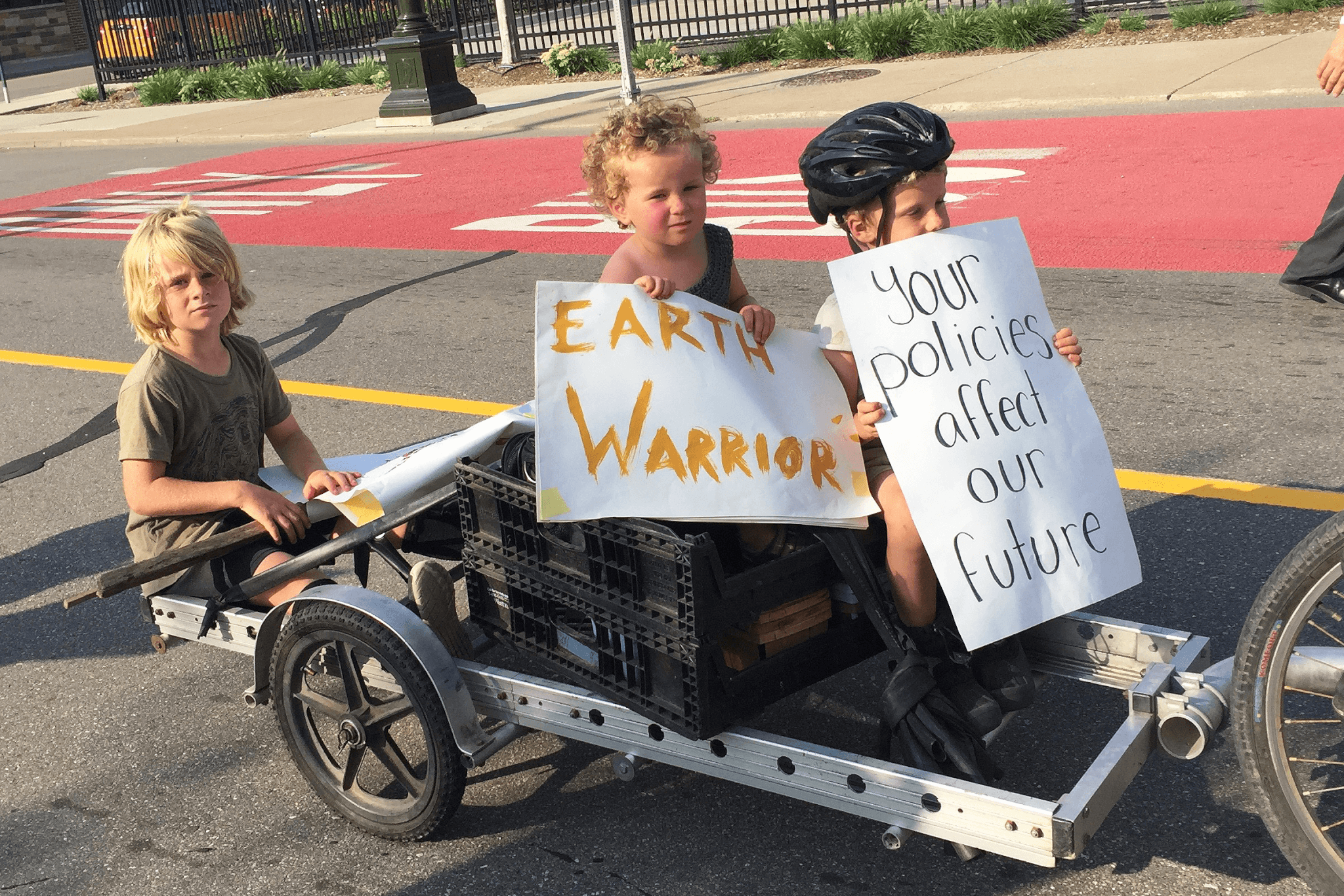
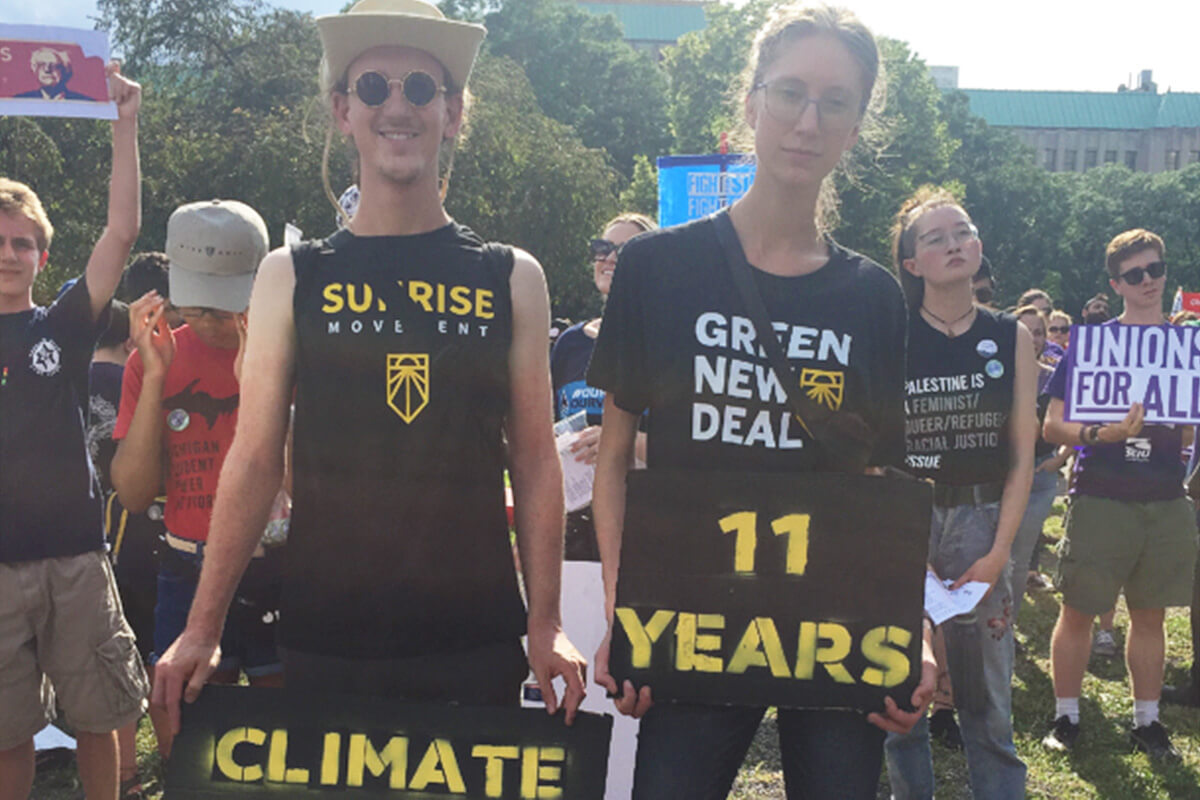
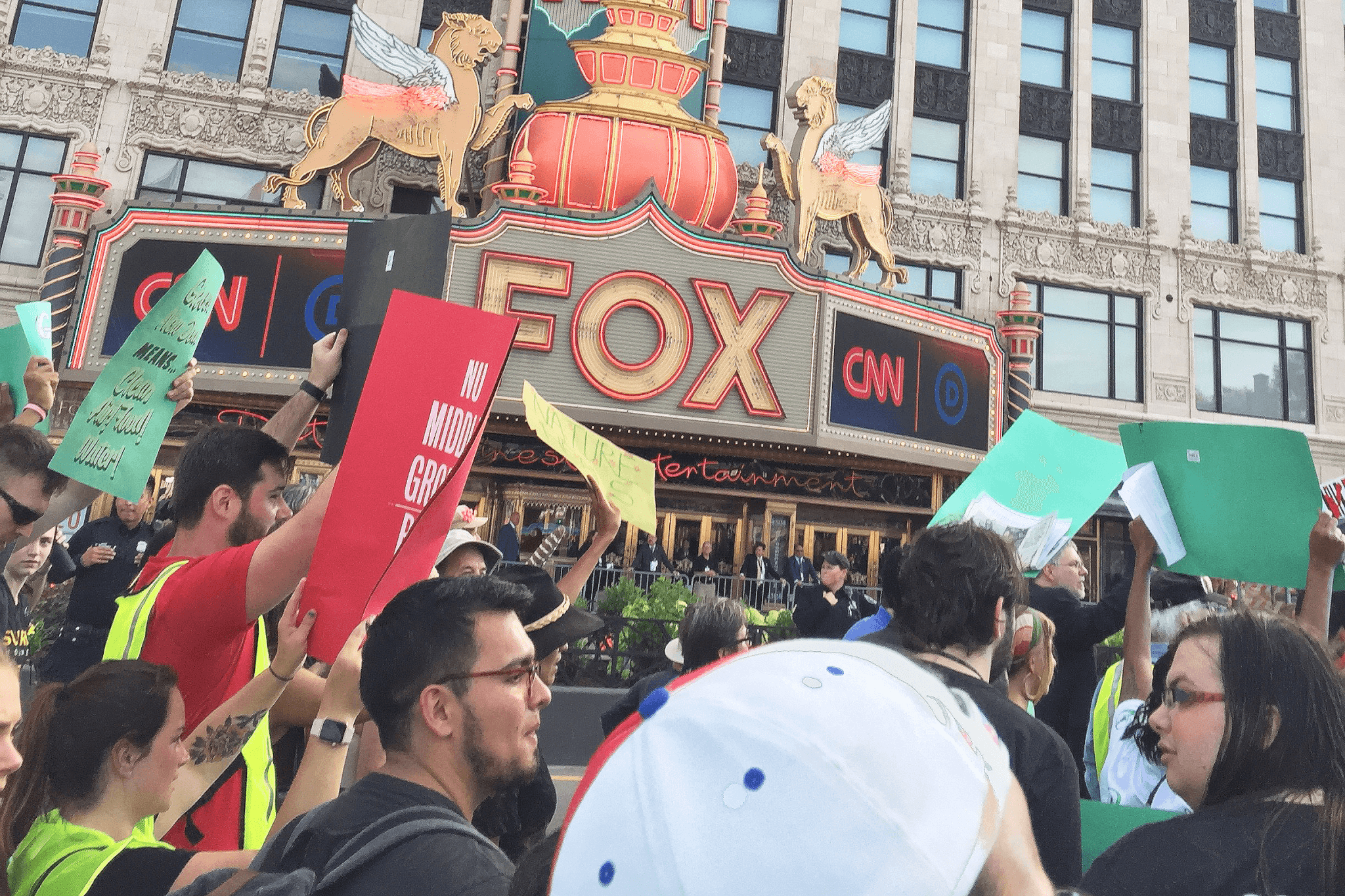
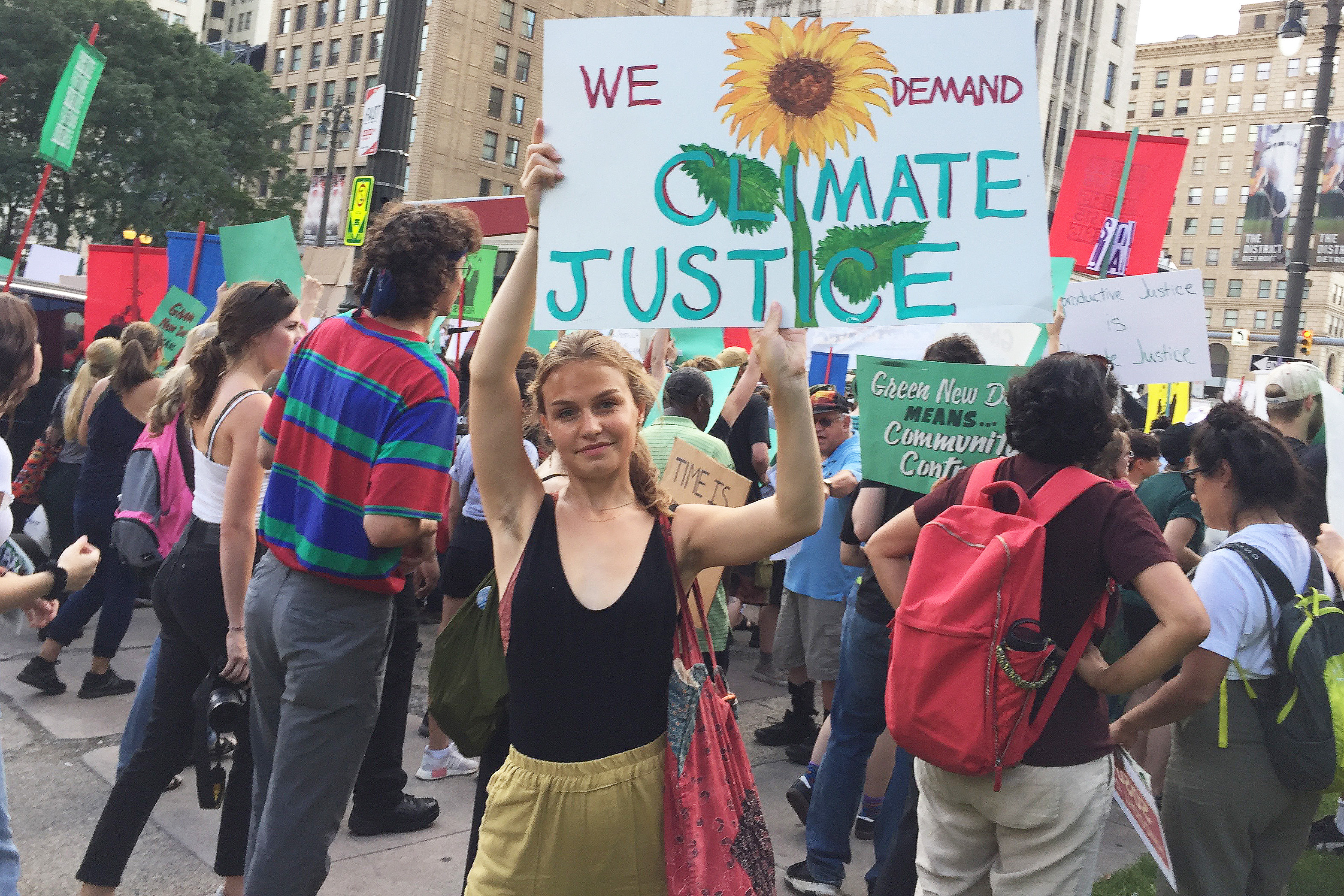
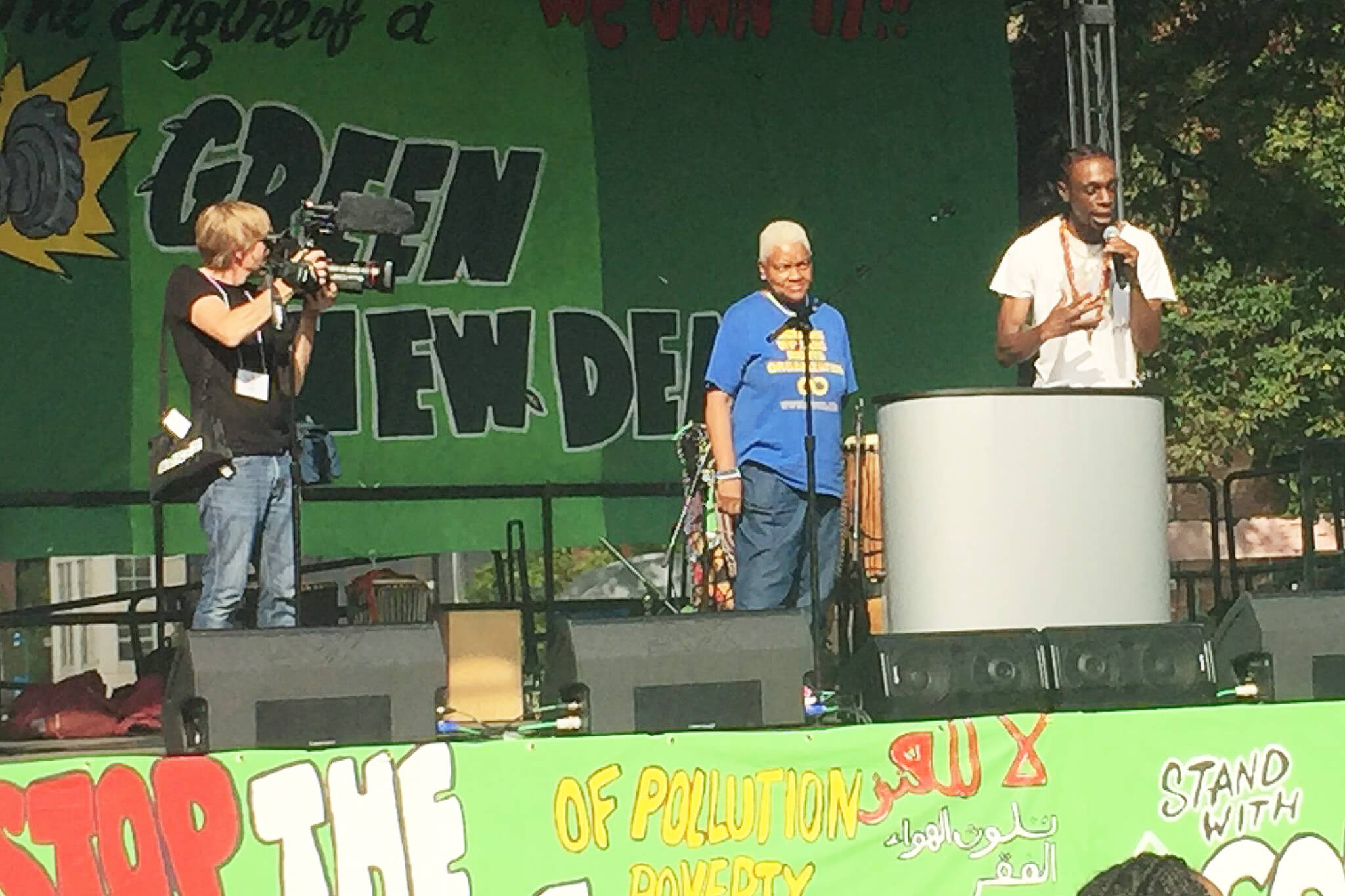

4 Responses
She has a talent.
Lead on. Our task is clear. Our time is now. There is no Planet B
my website https://cool-mining.com/en/mining-en/gminer-2-06-download-with-stability-improvements-for-qitmeer/
tkkffiese